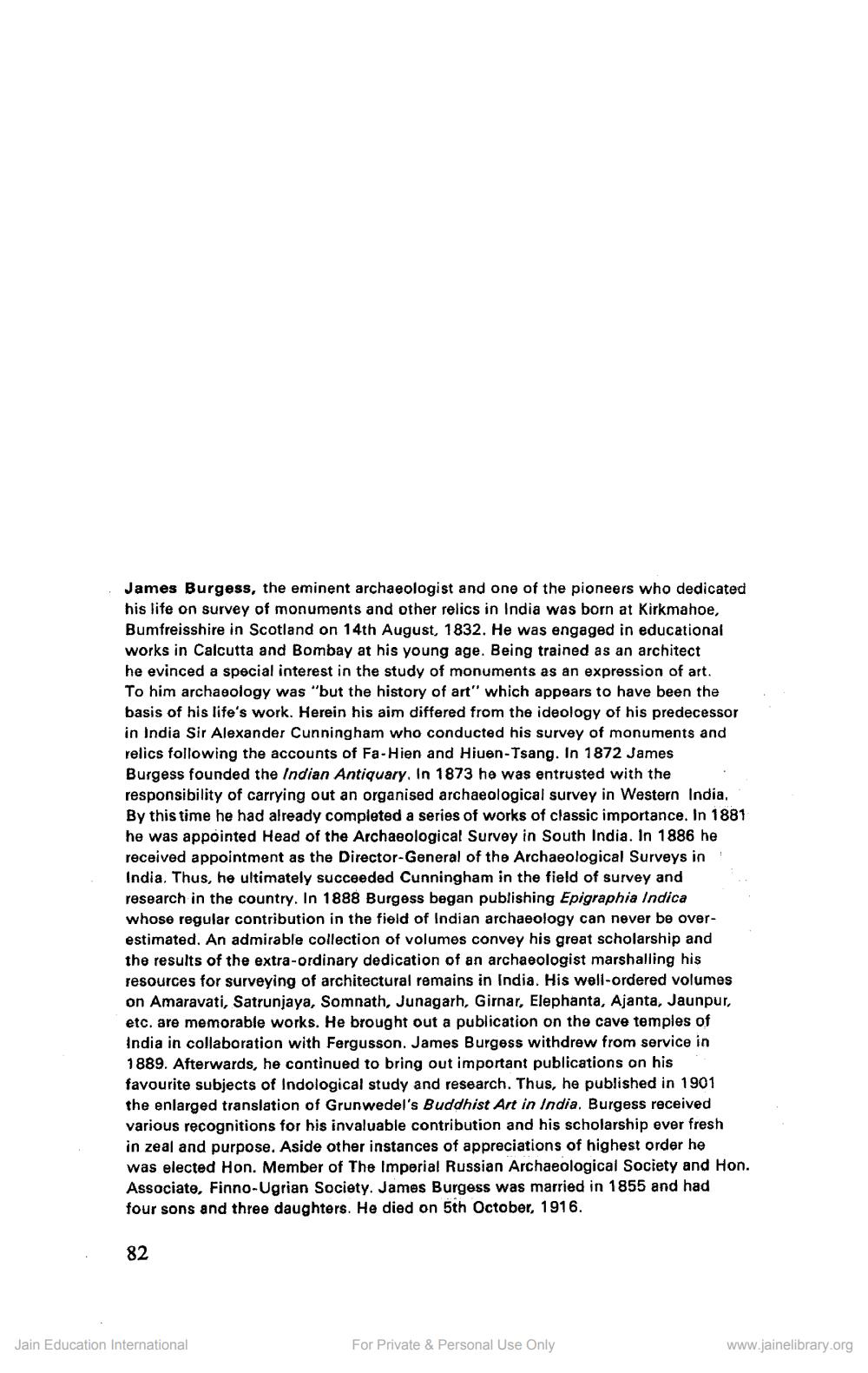________________
James Burgess, the eminent archaeologist and one of the pioneers who dedicated his life on survey of monuments and other relics in India was born at Kirkmahoe, Bumfreisshire in Scotland on 14th August, 1832. He was engaged in educational works in Calcutta and Bombay at his young age. Being trained as an architect he evinced a special interest in the study of monuments as an expression of art. To him archaeology was "but the history of art" which appears to have been the basis of his life's work. Herein his aim differed from the ideology of his predecessor in India Sir Alexander Cunningham who conducted his survey of monuments and relics following the accounts of Fa-Hien and Hiuen-Tsang. In 1872 James Burgess founded the Indian Antiquary, In 1873 he was entrusted with the responsibility of carrying out an organised archaeological survey in Western India." By this time he had already completed a series of works of classic importance. In 1881 he was appointed Head of the Archaeological Survey in South India. In 1886 he received appointment as the Director-General of the Archaeological Surveys in! India. Thus, he ultimately succeeded Cunningham in the field of survey and research in the country. In 1888 Burgess began publishing Epigraphia Indica whose regular contribution in the field of Indian archaeology can never be overestimated. An admirable collection of volumes convey his great scholarship and the results of the extra-ordinary dedication of an archaeologist marshalling his resources for surveying of architectural remains in India. His well-ordered volumes on Amaravati, Satrunjaya, Somnath, Junagarh, Girnar, Elephanta, Ajanta, Jaunpur, etc. are memorable works. He brought out a publication on the cave temples of India in collaboration with Fergusson. James Burgess withdrew from service in 1889. Afterwards, he continued to bring out important publications on his favourite subjects of Indological study and research. Thus, he published in 1901 the enlarged translation of Grunwedel's Buddhist Art in India. Burgess received various recognitions for his invaluable contribution and his scholarship ever fresh in zeal and purpose. Aside other instances of appreciations of highest order he was elected Hon. Member of The Imperial Russian Archaeological Society and Hon. Associate, Finno-Ugrian Society. James Burgess was married in 1855 and had four sons and three daughters. He died on 5th October, 1916.
82
Jain Education International
For Private & Personal Use Only
www.jainelibrary.org




